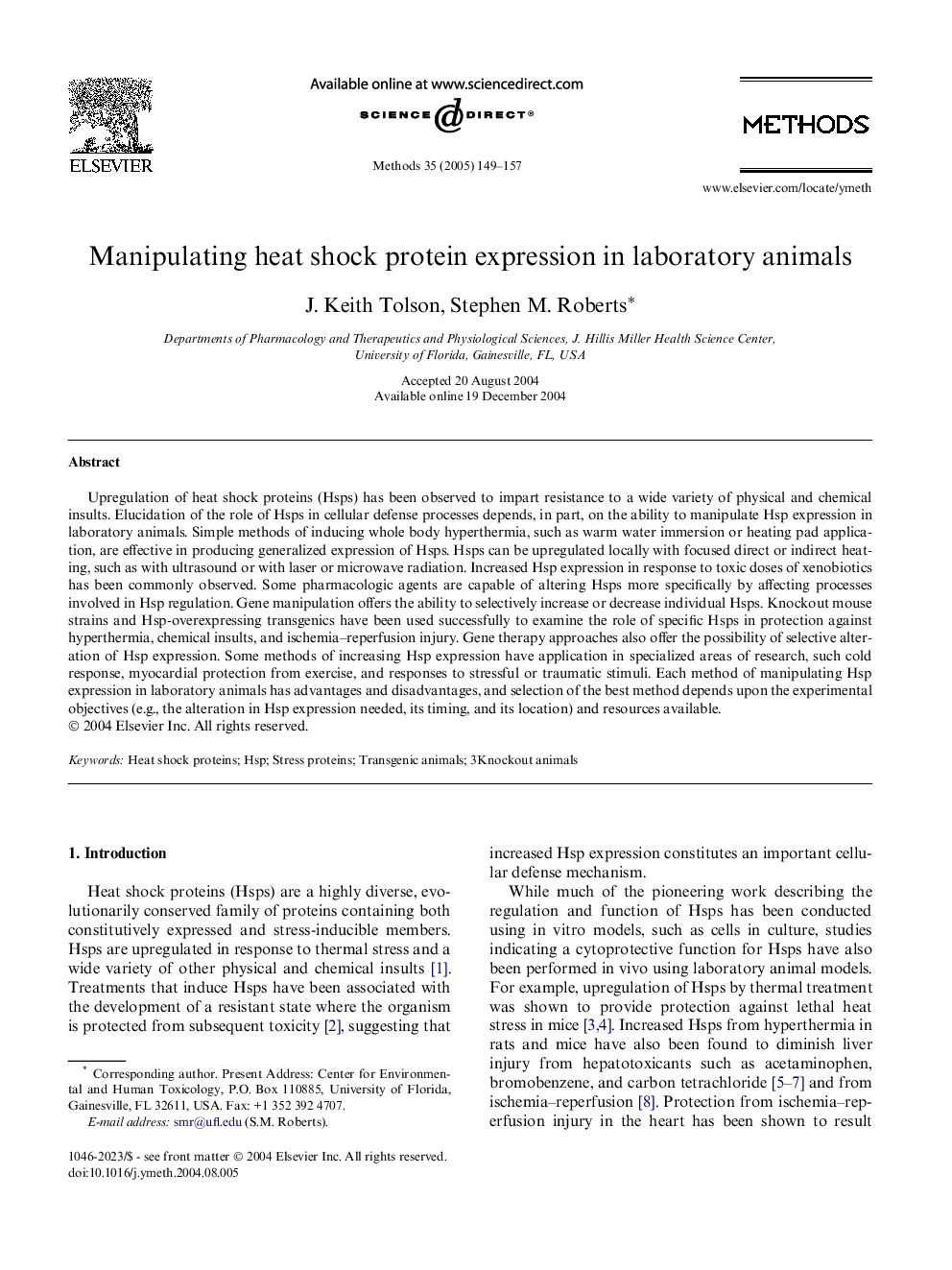| Article ID | Journal | Published Year | Pages | File Type |
|---|---|---|---|---|
| 10826711 | Methods | 2005 | 9 Pages |
Abstract
Upregulation of heat shock proteins (Hsps) has been observed to impart resistance to a wide variety of physical and chemical insults. Elucidation of the role of Hsps in cellular defense processes depends, in part, on the ability to manipulate Hsp expression in laboratory animals. Simple methods of inducing whole body hyperthermia, such as warm water immersion or heating pad application, are effective in producing generalized expression of Hsps. Hsps can be upregulated locally with focused direct or indirect heating, such as with ultrasound or with laser or microwave radiation. Increased Hsp expression in response to toxic doses of xenobiotics has been commonly observed. Some pharmacologic agents are capable of altering Hsps more specifically by affecting processes involved in Hsp regulation. Gene manipulation offers the ability to selectively increase or decrease individual Hsps. Knockout mouse strains and Hsp-overexpressing transgenics have been used successfully to examine the role of specific Hsps in protection against hyperthermia, chemical insults, and ischemia-reperfusion injury. Gene therapy approaches also offer the possibility of selective alteration of Hsp expression. Some methods of increasing Hsp expression have application in specialized areas of research, such cold response, myocardial protection from exercise, and responses to stressful or traumatic stimuli. Each method of manipulating Hsp expression in laboratory animals has advantages and disadvantages, and selection of the best method depends upon the experimental objectives (e.g., the alteration in Hsp expression needed, its timing, and its location) and resources available.
Related Topics
Life Sciences
Biochemistry, Genetics and Molecular Biology
Biochemistry
Authors
J. Keith Tolson, Stephen M. Roberts,
